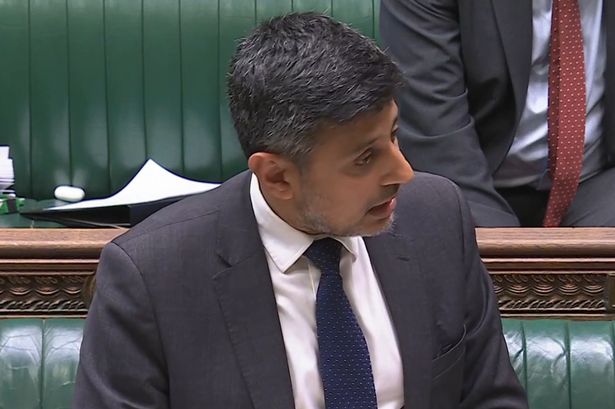Health
Government Confirms No Changes to NHS Free Prescription Eligibility

The UK Government has confirmed that there are no plans to alter the eligibility criteria for free prescriptions under the National Health Service (NHS) in England. The announcement came in response to a parliamentary question submitted by Liberal Democrat MP Vikki Slade, who asked about potential changes to the age at which residents qualify for complimentary NHS prescriptions and eye care services.
Currently, individuals in England can access free prescriptions when they reach the age of 60. Additional groups eligible for no-cost prescriptions include children under the age of 16 and those aged 16 to 18 who are in full-time education. Zubir Ahmed, the Labour health minister, addressed the matter in Parliament, reiterating the existing eligibility criteria.
Ahmed stated, “Free National Health Service prescriptions and NHS-funded sight tests are available for many. This includes children under the age of 16 years old and those under the age of 19 years old in full-time education, people on a low income, and adults aged 60 years old and over.” He also highlighted that NHS optical vouchers are available for children to assist with the cost of glasses.
The response from Ahmed clarified that there are no planned changes regarding eligibility based on age for free NHS prescriptions or related services. This assurance comes at a time when many are concerned about potential alterations to health benefits.
Understanding Eligibility for Free NHS Prescriptions
Several categories of individuals qualify for free NHS prescriptions, primarily based on their financial circumstances or specific health conditions.
People receiving certain benefits are eligible, including those on income support, income-based jobseeker’s allowance, or income-related employment support allowance. This eligibility extends to partners of claimants and young individuals under 20 who rely on a claimant. To access free prescriptions, individuals may need to present an award notice as proof of entitlement.
Pregnant women and new parents can qualify for free prescriptions if they have a valid maternity exemption certificate. This document serves as proof of their entitlement and must be presented when seeking prescriptions.
Individuals with specific medical conditions may also be eligible for free prescriptions. They must obtain a medical exemption certificate, which confirms their entitlement. Only those possessing a valid certificate can receive free prescriptions due to medical conditions, and this certificate should be shown as evidence.
For those on a low income, the NHS Low Income Scheme offers an HC2 certificate, which verifies eligibility for assistance with health costs, including free prescriptions. An HC3 certificate provides limited support but does not cover the costs of NHS prescriptions.
Furthermore, individuals receiving payments from the War Pension Scheme or the Armed Forces Compensation Scheme can also qualify for free prescriptions if they relate to an accepted disability. Those with a valid war pension exemption certificate can access these benefits.
The Government’s firm stance on maintaining the current eligibility criteria reflects a commitment to sustaining access to essential health services for vulnerable populations. As the landscape of healthcare continues to evolve, the assurance provided by Zubir Ahmed aims to alleviate concerns regarding potential changes to NHS prescription benefits.
-

 World4 days ago
World4 days agoCoronation Street’s Shocking Murder Twist Reveals Family Secrets
-

 Entertainment4 months ago
Entertainment4 months agoKate Garraway Sells £2 Million Home Amid Financial Struggles
-

 Entertainment3 months ago
Entertainment3 months agoAnn Ming Reflects on ITV’s ‘I Fought the Law’ Drama
-

 Health3 months ago
Health3 months agoKatie Price Faces New Health Concerns After Cancer Symptoms Resurface
-

 Entertainment4 weeks ago
Entertainment4 weeks agoCoronation Street Fans React as Todd Faces Heartbreaking Choice
-

 World4 weeks ago
World4 weeks agoBailey Announces Heartbreaking Split from Rebecca After Reunion
-

 Entertainment7 days ago
Entertainment7 days agoTwo Stars Evicted from I’m A Celebrity Just Days Before Finale
-

 World7 days ago
World7 days agoKevin Sinfield Exceeds Fundraising Goal Ahead of Final Marathons
-

 Entertainment3 months ago
Entertainment3 months agoCoronation Street’s Carl Webster Faces Trouble with New Affairs
-

 Entertainment3 months ago
Entertainment3 months agoWhere is Tinder Swindler Simon Leviev? Latest Updates Revealed
-

 Entertainment4 months ago
Entertainment4 months agoMarkiplier Addresses AI Controversy During Livestream Response
-

 Science2 months ago
Science2 months agoBrian Cox Addresses Claims of Alien Probe in 3I/ATLAS Discovery





















